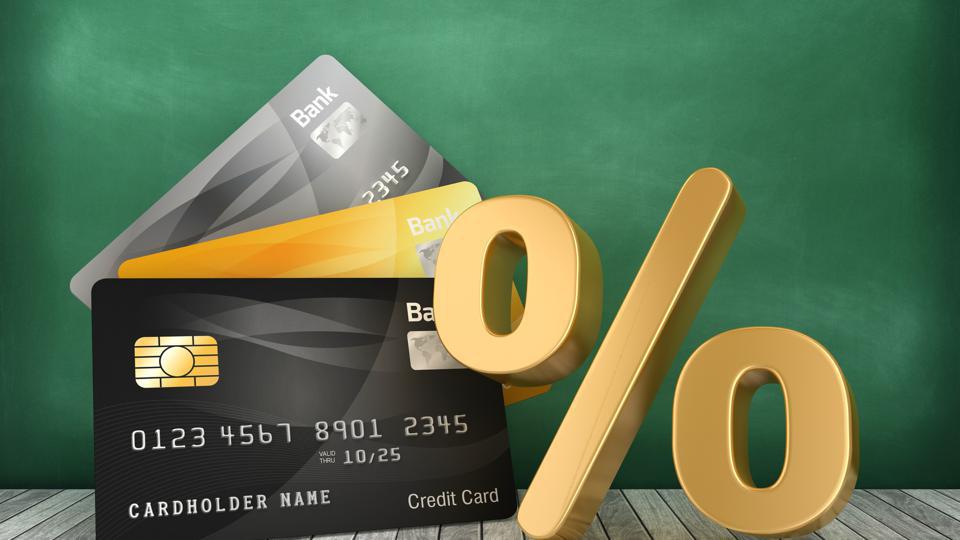Credit card companies levy interest on the amount you borrow from them. It is expressed in terms of ARP or Annual Percentage Rate, which fluctuates based on a benchmark, like the prime rate.
Credit card charges can vary from one card issuer to another. Again, the interest may be different for different cards from the same issuer. So, it is crucial to have a clear idea about how much interest you are asked to pay before you end up with a credit card in your pocket.
Note that credit card interests are charged when the outstanding bill amount is not paid in full or the card user makes the payment for the minimum amount due or even lesser than that. In such cases, the bank levies interest. Here, we shall try to understand how interest charges are levied on online credit card and what users must do to keep things in their control.
How Is The Your Credit Card Interest Calculated?
Ensure you are aware of the ARP your credit card company decided on while issuing the card to you. To know the same, you can check the terms and conditions for the credit card, or contacting customer service will also be helpful.
You can convert the ARP into decimal and then divide it by 365. This will give you the daily periodic rate of your credit card. The formula used to calculate credit card interest is (No. of days calculated from the transaction date x outstanding amount x Interest rate per month x 12 months)/365.
So, suppose you have an outstanding balance and carry it to the next billing cycle; the credit card interest will be charged following the average daily balance method. So, you will be charged interest based on the balance on the card as on the day before. And higher ARP on the credit card will mean higher interest rates on a daily basis. Hence, avoiding a revolving balance on your credit card is advisable.
Under What Circumstances Do You Have to Pay Credit Card Charges
Credit card interest is charged when the following situations take place:
- When you make no payment at all for a month, the bank will charge interest on the entire due amount. And the charge will also be levied on any new transaction from the date of the transaction till you clear the previous outstanding billing amount in full.
- If you plan to pay only a minimum amount due, interest will be charged on the remaining amount along with all new transactions until you clear the previous balance.
- If you plan to pay less than the minimum amount due, interest will be charged on the entire outstanding amount and any new transaction made until the previous due amount is cleared in full.
- If you withdraw cash using your credit card, interest will be charged on the amount withdrawn from the withdrawal date and will continue until the amount is repaid in full.
- In case you fail to clear the previous month’s outstanding amount in full, the remaining amount will be carried forward to your next billing cycle by the bank. In all such cases, credit card charges will be levied on the outstanding amount and on all new transactions until you can clear the previous dues.
How To Avoid the Burden of Credit Card Interest Charges?
Here are simple yet valuable tips that can help you reduce credit interest rates widely:
- The best way to avoid paying with credit card interest is to always align payments with due dates. If you have multiple credit cards, ask your bank to align the payments simultaneously every month. It will be easier to keep track of the payments you make for the credit cards every month. Different payment dates for different credit cards can lead to missing some dates and adding to the outstanding amount.
- Try to make payments on time and as much as possible. It is better never to carry a balance to the next bill cycle to avoid added interest on your credit card. You can pay the due amount in small parts throughout the month to avoid debt. This will also help to keep you a check on your spending habits.
New users can get credit cards with a 0% rate during the initial period. Applying for credit cards with 0% introductory ARP is a good way of getting some time to pay off the outstanding amount. New users should also avoid sharing their card details with anyone, especially the credit card CVV number, to avoid unauthorised card usage and becoming a victim of fraud.
Also Read: 7 Strategies to Reduce Your Credit Card Processing Fees
Conclusion
Compounding interest rates on credit cards is the last thing any credit card user would like to experience, as it can soon make things go out of your hands. Hence, it is essential to understand how credit card interest works and how to keep a check on your expenses to keep things within your control. Being conscious about your spending and keeping payments organised will help you use credit cards calculatedly, minus the pain of added interest rates.

